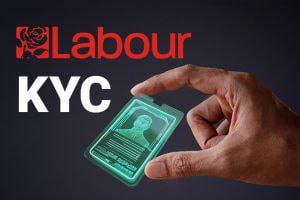New Premier League Chief Calls for Firmer Sponsor Regulation
The newly appointed chief executive of the Premier League has admitted that there needs to be “slightly firmer” rules on gambling companies sponsorship deals with clubs. Richard Masters, who took up the role in December last year, is, however, against a blanket ban of Premier League clubs sponsorships by betting companies.

New Premier League Boss Admits Regulations Needed © Pixabay.
In an interview with Sky News, Masters said that he thought “the whole area does need, I think, slightly firmer regulations, particularly around the most vulnerable”. Adding though that he believed an outright ban on sponsorships with football clubs would not be a viable option.
The former managing director and interim chief executive said the Premier League was not “sniffy” about the gambling industry but reiterated it was the football clubs who are in partnership with betting companies, not the Premier League.
Masters added that he didn’t feel that the answer would be to prevent teams from entering into arrangements with companies involved with betting. The close relationship between football clubs and betting companies has come under intense scrutiny recently with fears that the sheer amount of betting advertisements in and around the game normalises betting, especially among young fans.
With Premier League betting on the rise, ten of the twenty teams in the Premier League have shirt sponsorship deals with betting companies; these are Arsenal (W88), Bournemouth (M88), Burnley (LoveBet), Crystal Palace (ManBetX), Everton (SportPesa), Newcastle United (Fun88), Norwich City (Dafabet), Watford (Sportsbet.io), West Ham United (Betway) and Wolverhampton Wanderers (ManBetX). Four Premier League clubs also have betting companies as their sleeve sponsors.
While not under the remit of the Premier League, the situation in the Championship is even more alarming for campaigners with 17 of the 24 clubs in the division have a betting name or logo on their shirts. Meaning that 27 out of England’s 44 top placed teams have a commercial relationship with gambling companies.
Brigid Simmonds, chair of the Betting and Gaming Council (BGC) who represent the majority of operators, voiced the opinion that it was a contentious issue that teams had betting partners but said it was important the revenue was spent wisely. Saying;
I do think there’s an issue about sports sponsorship, but I’m a passionate supporter of what sponsorship can do and how the money can be used in the right way.– Brigid Simmonds, BGC chair.
Simmonds comments are however at odds with the comments made by the Gambling Related Harm All-Party Parliamentary Group (APPG). In their interim report into the harm caused by online gambling. In that report, released in November, the Group were damming in their assessment of the benefit these relationships bring.
The Group report that online casinos and sports betting sites pay almost £120 million to sponsor Premier League football clubs but are contributing as little as £50 per team to Britain’s biggest gambling charity. The report adds that some companies gave nothing, while others gave as little as £5 even though punters lost £5.6bn on gambling in 2018 alone.
The report also was highly critical of the number of advertisements that are displayed during televised games. Citing a recent old-firm clash between Rangers and Celtic, the report says there were 920 occasions on which gambling brands were visible, a figure the Group say is equivalent to one every 10 seconds.
The report indicates the situation is just as bad in the Premier League with Professor Jim Orford reporting in a study that gambling logos are on screen for 70% of the time during ‘Match Of The Day’ on BBC One when broadcasted in the UK.



